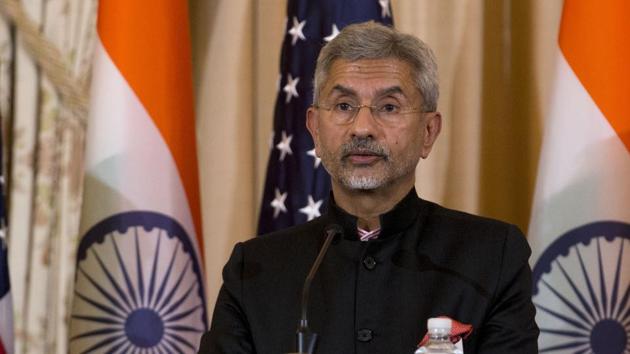India must find equilibrium with China on key issues: S Jaishankar
Speaking at the Raisina Dialogue, a think tank event backed by his ministry, Jaishankar said India hasn’t closed its doors to the Regional Comprehensive Economic Partnership (RCEP) and it is up to the other states involved in the free trade agreement to convince the country to sign on.
India and China must find equilibrium and understanding on key issues affecting their relationship because the two neighbours and emerging powers have no choice but to get along, external affairs minister S Jaishankar said on Wednesday.

Speaking at the Raisina Dialogue, a think tank event backed by his ministry, Jaishankar said India hasn’t closed its doors to the Regional Comprehensive Economic Partnership (RCEP) and it is up to the other states involved in the free trade agreement to convince the country to sign on.
He also described India as a “stabilising power” and not a “disruptionist power” on the world stage, and it shouldn’t be self-centred or mercantilist. India should be law-abiding and work for a rules-based order while using its capacities for global good, including as a net security provider and in dealing with challenges such as terrorism and climate change.
Speaking on ties with China, Jaishankar said: “To my mind, it is absolutely necessary that the two countries find equilibrium and find accommodation and understanding on the key issues which affect each other. For me this is a must, it is not a choice.”
Neither side can get the relationship wrong, he said, adding, “The reason is that we are neighbours. It is vital for neighbours to reach understandings as a general principle.”
The India-China relationship is also unique because it is very rare to have two powers who are neighbours rising on the global stage in approximately the same timeframe, he said.
The challenge for both sides is deciding the terms and the basis for reaching understanding on their differences and how this will work. “I would say it is a work in progress and it will be continue to be a work in progress,” he said.
With India and China expected to be among the world’s top powers within a decade, “the logic of reaching an understanding will be a very, very powerful logic”, he said.
Ties between China and India were hit by the military stand-off at Doklam in 2017, but they improved after Prime Minister Narendra Modi and Chinese President Xi Jinping held their first informal summit in Wuhan in 2018. The second informal summit was held in Mammallapuram last October.
On the RCEP, Jaishankar said India pulled out of the trade deal being negotiated by the 10 Asean states and six trade partners last November as the offer made by the other countries didn’t meet India’s expectations.
“Where RCEP is concerned, we have to look at cost and benefit. We will evaluate RCEP on its economic and trade merit. We have not closed our mind to it,” he said. The ball, he said, is in the court of the other countries involved in RCEP.
India had pulled out of RCEP as its “core concerns” were unresolved and the proposed deal would impact the livelihoods of all citizens. RCEP states such as Japan have said efforts are being made to get India to join the trade deal likely to be signed in February.
Though India has been a “prisoner of its past image”, it is now more of a decider and shaper than an abstainer, and this has been reflected in its work in areas such as connectivity and climate change, Jaishankar said. India is involved in 142 connectivity projects around the world, 53 of which were completed in the past five years.
Answering a question on how the country is dealing with criticism over the actions in Kashmir and the new citizenship law, he said the key issue should be whether India is going to define itself or allow others to define it.
“I would like to believe that it is the first. That is my political outlook and that of my party,” he said, adding it is important to see how India responds to common challenges faced by many countries.
“Don’t get fixated on the dots and ignore the line. These are important issues. At the end of the day they reflect the mindset towards governance,” he said.
He added, “The bottomline is: Are we going to just inherit problems, multiply them, pass them on, or are we going to deal with some of them and probably leave the people who come after us better off.”






